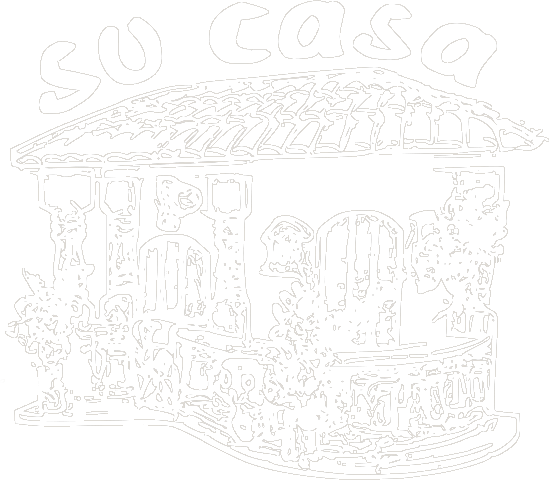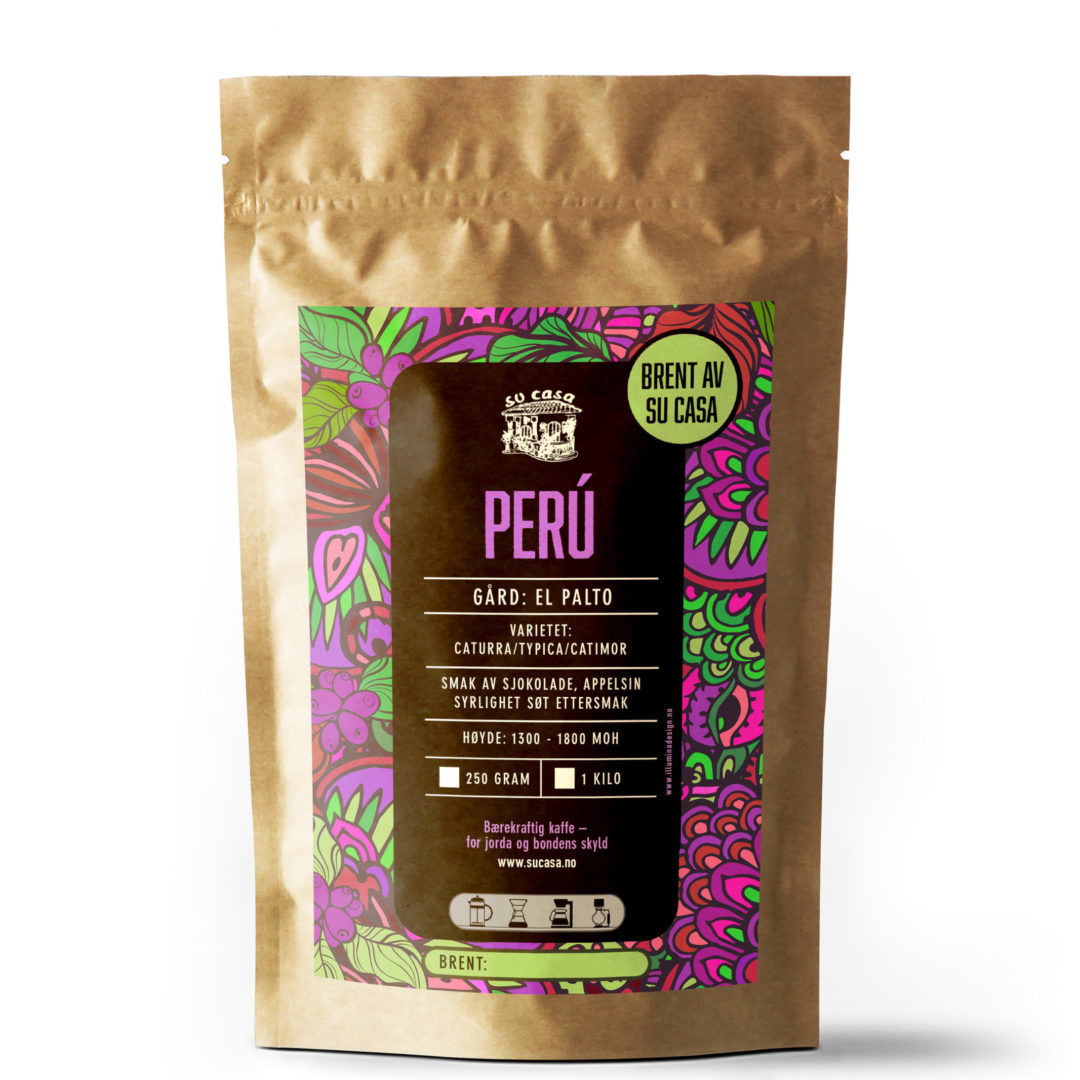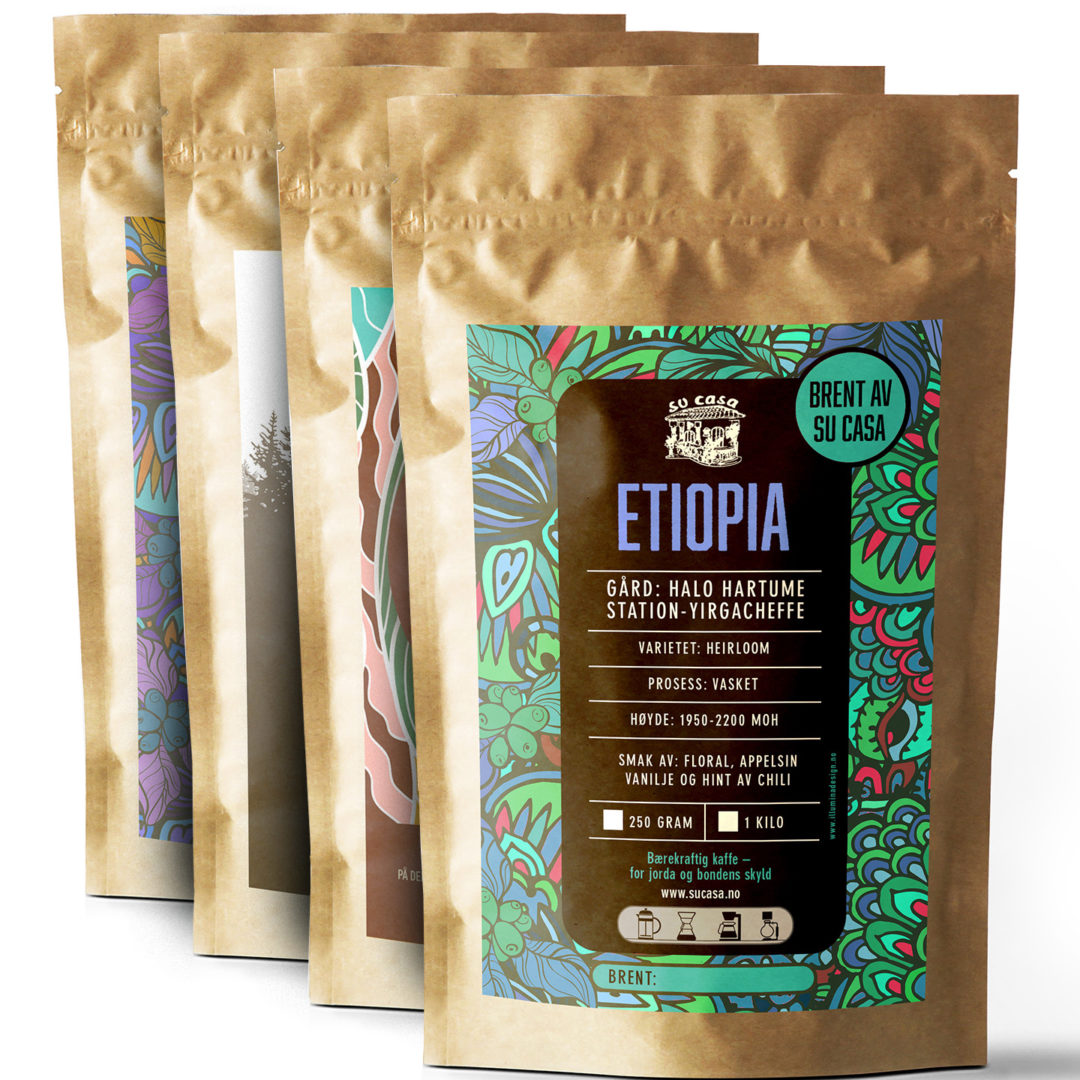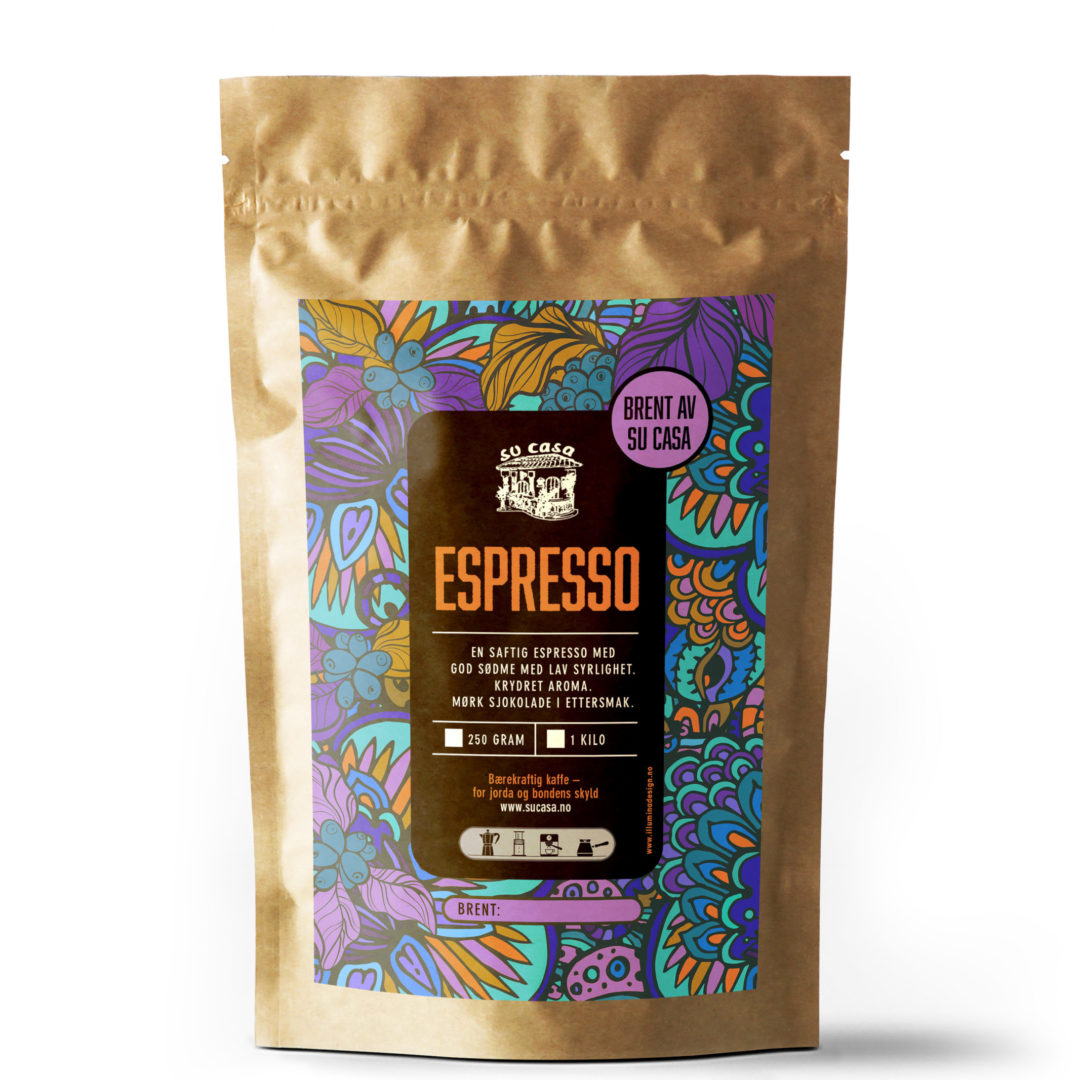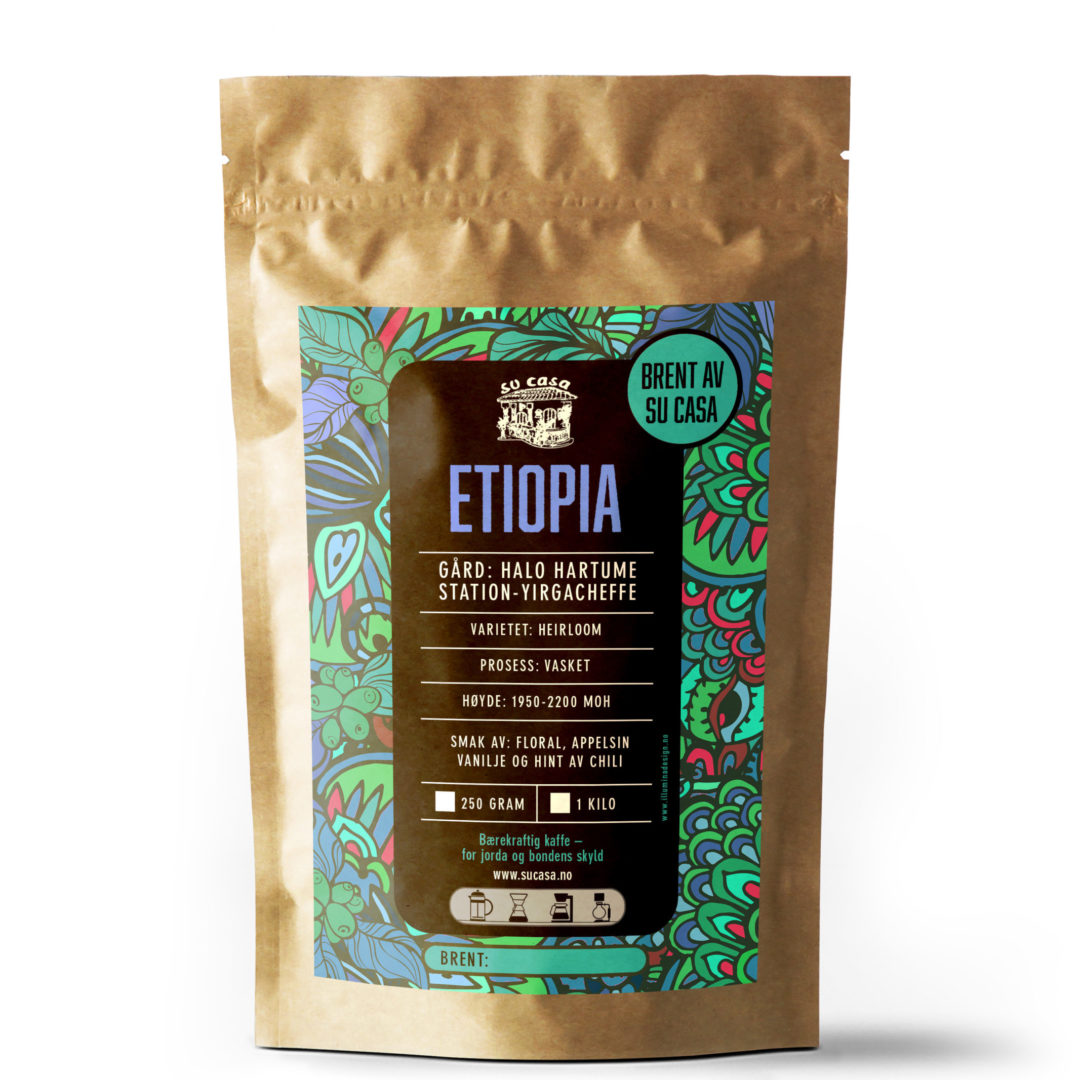Perú-El Palto Organic
Land: Peru Gård/Vaskestasjon: JUMARP El Palto Sort: Caturra / Typica / Catimor Kommentarer: mild syre, melkesjokolade, appelsin Poengsum: 84 Høyde: 1300-1800m Sertifisering: Fairtrade & Økologisk
Fra kr 149,00 — eller from Fra kr 149,00 Fra kr 141,55 / måned
Beskrivelse
“EL PALTO” JUMARP – PERU
JUMARP “El Palto” is our main source for classic FTO grade 1 Peruvian coffee. Every year, we commit to a couple of containers from the cooperative, so that they can rest assured to have a buyer for their production, even if it is a tough year for quality. This way, we support their project for quality improvement.This year, we expanded the lineup from El Palto with microlots with producer traceability, and a lot from the JUMARP Mujeres group that supports the association’s program for gender equity in their community!
Juan Marco “El Palto” producer association
The Asociación de Productores Cafetaleros Juan Marco “El Palto” – in short, JUMARP – was founded by José Carranza Barboza in 2003, together with 35 other smallholder farmers. They created the association in a desire to develop a new model of growing and exporting coffee. In 2012, JUMARP “El Palto” launched an ambitious program for quality improvement among its members. They collected funds from the Fairtrade and Organic premiums, from government funding and contribution of the members themselves.
By 2021, the producer group plans to raise the general cup score to 85-86 across the board. To achieve this, they will:
- build drying houses at all member farms, starting where the need is highest at the lower altitudes
- build manual pulpers and fermentation tanks at each member’s farm
- plant higher quality varieties
Social and environmental awareness
Coffee production in the Amazonian Andes of northern Peru, where JUMARP is active, started in the 1950s. Farming practices relied heavily on the use of agro-chemicals for a long time. After many decades, this group decided to change the old ways and start sustainable coffee production in harmony with the native forest. They also realized that united they would stand stronger in the commercialization of their coffee. This way, and by obtaining certification, they want to guarantee a steady income for their members and to improve the living standards of the community.
Its 188 members all produce organic and fair trade certified coffees. One of the priorities of the association over the past two years has been increasing productivity. To achieve this, JUMARP invest half of the premium they receive in crop renovation and conversion to organic farming methods. The fund for education programs and the construction of schools receive another large chunk of the premium. The remaining part goes into the payment of the association’s permanent staff.
Selva Alta biosphere
The producers associated to JUMARP all farm small parts of land. Altogether, the 188 producers grow coffee on 549 hectares in the “Selva Alta” in northern Peru. This is a specific type of ecosystem found in Peru and Mexico, with dense and humid forests. JUMARP unites farmers in the El Palto area of the Yamón district, located in the Utcubamba province of the Amazonas region in northern Peru.
Peru
Peru lies along the western coastline of South America. The country lies south of Ecuador and Colombia, west of Brazil, and northwest to Bolivia and Chile. Peru’s climate is hugely diverse, with a tropical area in the eastern lowland jungle, a dry desert area in the west along the coast, and a temperate to cold climate up high in the Andes Mountains.
Coffee growing areas
In Peru, coffee grows on the eastern slopes of the Andes mountain range. On these eastern slopes, coffee production takes place in three principal growing areas. Production has gradually moved from the central highlands of the Chanchamayo area (28% of total production) to the northern highlands in the Amazonas and San Martin regions (49% of total production). The southern highlands account for 23% of coffee production.
Peru grows Arabica coffee almost exclusively; Typica accounts for 70%, Caturra about 20%, and 10% of Peru’s coffee plants are other varieties. The harvesting season begins in April and reaches its peak in June-September.
Production traditions
The large majority of Peruvian coffee production takes place in the highlands between 1000 and 1800 meters above sea level. Coffee typically grows under shade with an average plant density of 2000 plants per hectare. Balancing on the steep hills with the picking basket, the pickers handpick the cherries selectively. They bring the cherries down to the processing center for pulping and sun-drying, following traditional methods.
As the world’s leader in organic coffee export, Peru is probably best known for its certified coffee production. Recently, the country is also appearing on the radar of the specialty coffee industry.
Producer organization
Most Peruvian coffee producers are small farmers, who own three hectares on average. These producers are grouped in associations or cooperatives that allow them to negotiate better prices, improve post-harvest handling of production, and develop marketing strategies. The larger associations have up to 2000 members and own over 7000 hectares. The most sophisticated associations can even have a financial branch that provides loans to producers to purchase inputs, partially pay for costs of production to increase yields and improve crop quality. Some of these associations also provide technical assistance to farmers. These service cooperatives market their product directly or have a long-term relationship with a coffee trader who does this for them.
- Country: Peru
- Farm/Washing station: JUMARP El Palto
- Variety: Caturra / Typica / Catimor
- Crop: 2018
- Comments: CPPE-3428: mild acidity, milk chocolate, orange | Score: 84
- Producer group: Asociación de Productores Cafetaleros Juan Marco El Palto (JUMARP)
- Members: 188
- Location: El Palto–Yamón district – Utcubamba – Amazonas department – northern Peru
- Mountain range: Peruvian Andes
- Altitude: 1300-1800m
- Certification: Fairtrade & Organic
Tilleggsinformasjon
| Mengde | 250g, 1kg |
|---|---|
| Variant | Aeropress, Filtermalt, Hele Bønner, Kokmalt, Presskannemalt |
